Sarah Sundin's Blog, page 444
January 20, 2013
Today in World War II History
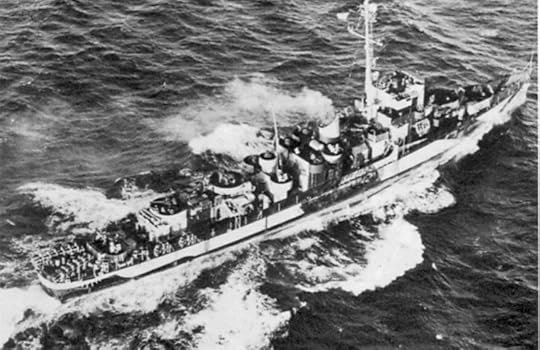 Evarts Class Destroyer Escort Ship70 Years Ago—Jan. 20, 1943: First destroyer escort type ship, Brennan(DE-13), commissioned at Mare Island CA. Journal of the American Medical Assn. reports new painless childbirth technique using continuous caudal anesthesia.
Evarts Class Destroyer Escort Ship70 Years Ago—Jan. 20, 1943: First destroyer escort type ship, Brennan(DE-13), commissioned at Mare Island CA. Journal of the American Medical Assn. reports new painless childbirth technique using continuous caudal anesthesia.
Published on January 20, 2013 01:00
January 19, 2013
Today in World War II History
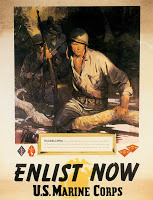 70 Years Ago—Jan. 19, 1943: US launches final offensive on Guadalcanal. In Libya, Montgomery flanks Rommel near Tripoli, forcing retreat.
70 Years Ago—Jan. 19, 1943: US launches final offensive on Guadalcanal. In Libya, Montgomery flanks Rommel near Tripoli, forcing retreat.
Published on January 19, 2013 01:00
January 18, 2013
Today in World War II History
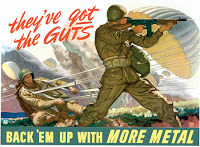 70 Years Ago—Jan. 18, 1943: Soviets open corridor to supply Leningrad, which remains open throughout war. First Warsaw uprising: Nazis attempt to deport Jews from ghetto, but are met with gunfire. US bans sale of sliced bread to conserve metal parts in bakeries.
70 Years Ago—Jan. 18, 1943: Soviets open corridor to supply Leningrad, which remains open throughout war. First Warsaw uprising: Nazis attempt to deport Jews from ghetto, but are met with gunfire. US bans sale of sliced bread to conserve metal parts in bakeries.
Published on January 18, 2013 01:00
January 17, 2013
Book Beat - Hidden in the Heart by Catherine West
 Sometimes when life is a mess, you wonder just who you are.
Sometimes when life is a mess, you wonder just who you are.For Claire Ferguson in Hidden in the Heart by Catherine West, a series of tragedies sends her life spiraling out of control into addiction and awakens her lifelong question: Who am I? Adopted into a loving, doting family as an infant, Claire feels she's betraying them by wanting to know about her birth mother. But she does.
A cryptic note leads her to a friendly inn in Maine, where she finds much more than she was looking for.
Realistic and memorable characters, a charming setting, and beautiful writing all support this incredibly moving story. Catherine West doesn't hold anything back - the grittiness of addiction, the pain of infertility, and the multi-layered emotions wrapped up in adoption - they're all here. I highly recommend this book.
Published on January 17, 2013 02:00
Today in World War II History
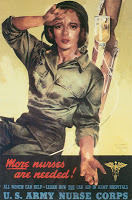 70 Years Ago—Jan. 17, 1943: US Naval Base and Naval Air Station, Brisbane, Australia is established. For the first time, a nurse participates in air evacuation, accompanying patients from India to Washington DC.
70 Years Ago—Jan. 17, 1943: US Naval Base and Naval Air Station, Brisbane, Australia is established. For the first time, a nurse participates in air evacuation, accompanying patients from India to Washington DC.
Published on January 17, 2013 01:00
January 16, 2013
Today in World War II History
70 Years Ago—Jan. 16, 1943: Nazis begin destruction of 1400 buildings in the old quarter of Marseille, France to prevent partisan activity. British Eighth Army links with Free French under Gen. Jean Leclerc, who had marched 30 days across Sahara from Lake Chad.
Published on January 16, 2013 01:00
January 15, 2013
Today in World War II History
70 Years Ago—Jan. 15, 1943: Montgomery begins offensive at Buerat, Libya against Rommel. Premiere of Hitchcock’s Shadow of a Doubt, starring Teresa Wright & Joseph Cotten.
Published on January 15, 2013 01:00
January 14, 2013
Make It Do - Metal Shortages in World War II
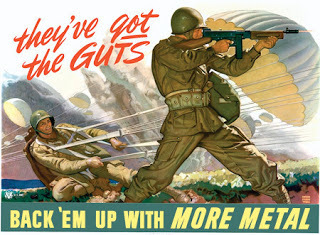 Imagine going to the store and not finding batteries, thumbtacks, alarm clocks, or paper clips on the shelves.
Imagine going to the store and not finding batteries, thumbtacks, alarm clocks, or paper clips on the shelves.During World War II, metals and factories were needed for military purposes. Ships and planes and jeeps and guns and ration tins and helmets took precedence over civilian products. After the United States entered the war, factories quickly shifted from manufacturing civilian goods to military material. The last automobile rolled off the assembly line on February 10, 1942. And on April 2, 1942, the War Production Board ordered a reduction in the use of metals in packaging. This resulted in the rationing of canned foods (Make It Do - Rationing of Canned Goods in World War II).
Scrap drives and tin can drives reclaimed tons of metals (Make It Do - Scrap Drives in World War II), but not enough to prevent shortages.
Shortages
Many everyday items became hard to find - can openers, kitchen utensils, steel wool, batteries, bobby pins, hair curlers, razor blades, wristwatches, thumbtacks, paper clips, pins, needles, zippers, garden tools, and bed springs. People learned to take care of what they had - or do without.
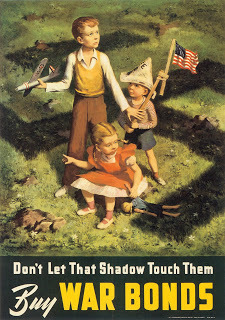 Appliances
AppliancesBoth large and small appliances were not manufactured during the war, so appliance stores shifted their business focus from sales to repairs. Often families or neighbors would share appliances. In July 1944, to encourage home canning but prevent botulism, 400,000 pressure cookers were released for sale, preferably for community use. In Antioch, California, the PTA purchased a pressure cooker to share within the community.
Toys
Many popular children's toys couldn't be manufactured due to restrictions or shortages of rubber, tin, and steel. Manufacturers converted to wood and cardboard.
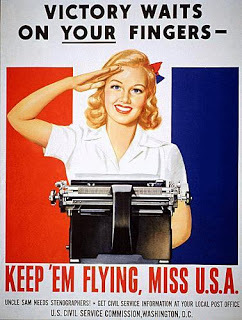 Typewriters
TypewritersNot only did typewriters contain metal, but they were vital to a paperwork-dependent military. In July 1942, a call went out to the public to turn in any late-model, nonessential typewriters to the military. Typewriters were rationed from March 6, 1942 to April 22, 1944, requiring a certificate from the local ration board for a purchase.
Failures
Some programs ended up as humorous failures. In July 1942, the government proclaimed a stop to the manufacture of beauty products - but a great uproar led to the repeal four months later. Sliced bread also briefly became unavailable. On January 18, 1943, the sale of sliced bread was banned in order to conserve the metal blades. This ban lasted only until March 8. Alarm clock production stopped July 1, 1942. However, employers all over the nation lobbied to resume production to reduce absenteeism. In March 1943, alarm clocks were produced again.
Which of these shortages would have been most difficult for you?
Published on January 14, 2013 08:46
Today in World War II History
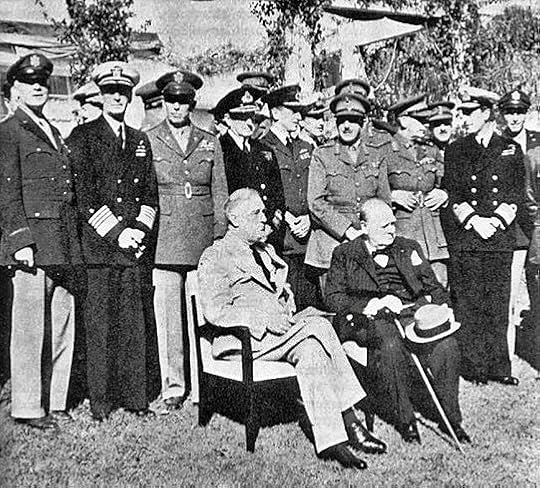 Roosevelt and Churchill at Casablanca70 Years Ago—Jan. 14, 1943: Casablanca Conference begins: Roosevelt and Churchill meet in media secrecy to plan course of war. Australians clear Sanananda Trail junction, New Guinea.
Roosevelt and Churchill at Casablanca70 Years Ago—Jan. 14, 1943: Casablanca Conference begins: Roosevelt and Churchill meet in media secrecy to plan course of war. Australians clear Sanananda Trail junction, New Guinea.
Published on January 14, 2013 01:00
January 13, 2013
Today in World War II History
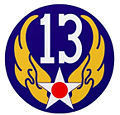 70 Years Ago—Jan. 13, 1943: Students at the University of Munich riot after Nazi speaker says Stalingrad situation is due to student malingerers. US Thirteenth Air Force formed in South Pacific under Brig. Gen. Nathan Twining, based in Espiritu Santo, New Caledonia. In “Sleepy Lagoon” case in Los Angeles, 17 Mexican-Americans are wrongly convicted of murder; convictions overturned 2 years later.
70 Years Ago—Jan. 13, 1943: Students at the University of Munich riot after Nazi speaker says Stalingrad situation is due to student malingerers. US Thirteenth Air Force formed in South Pacific under Brig. Gen. Nathan Twining, based in Espiritu Santo, New Caledonia. In “Sleepy Lagoon” case in Los Angeles, 17 Mexican-Americans are wrongly convicted of murder; convictions overturned 2 years later.
Published on January 13, 2013 01:00



